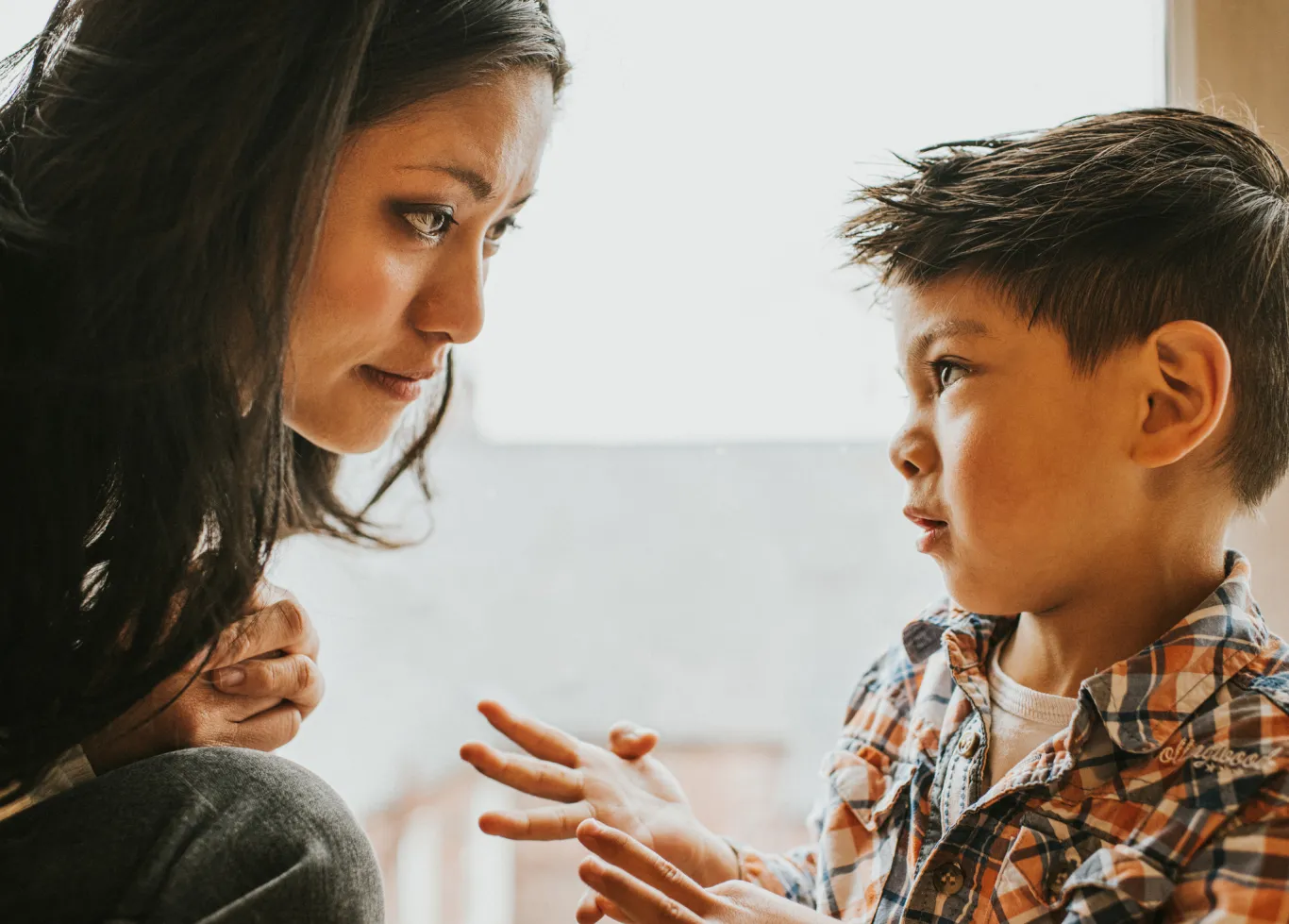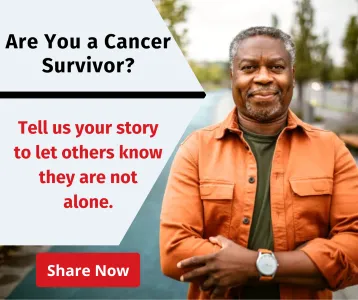How Do I Talk to My Kids About My Cancer Diagnosis?

Stock photo posed by models, sourced by Getty Images
You've been diagnosed with cancer and have to decide how to tell your kids. How do you explain cancer to children? How do you help guide them through your treatment?
I feel things need to be approached differently for different kids/personalities. It is not a ‘one size fits all’ thing even with siblings. Kids should not be forced to act, feel, etc. a certain way.
We know that supporting your children through this process can be a daunting task. So, here are some ideas, activities, and resources to help you navigate this part of your cancer journey. Learn tips to:
- Tell your children about your diagnosis
- Provide ongoing support to your children
- Find guided support for your children
Telling Your Children
You may fear that talking openly about cancer will frighten your children and make things worse and more stressful for everyone. Even though keeping your diagnosis a secret may seem like the easiest option, children are very perceptive. Even if your child does not know about your cancer, he or she will likely know that something is wrong, so allowing your children to be part of the conversation will give them the opportunity to be helped and have support through this challenging time.
What you tell your children and how you explain cancer to them will depend heavily on their age and individual personalities. What a 2-year-old can understand about cancer is very different from what a 5-year-old can understand. Each child is different and will have slightly different needs when having conversations about cancer. The key is to be honest in answering their questions, and use simple language that your child can understand.
We offer a free age-specific guide on talking to your children about cancer. It includes tips for answering common questions and more detailed ways to help your child through this process. If you have more questions about how to best approach the subject of cancer with your children, watch our Talking With Our Children Webinar. Learn ways to begin the cancer conversation and hear the perspective of another parent who has worked through a similar experience.
My children would rather I communicate openly than to leave it to the imagination. While imagination is great, in this case, knowing the bad results that cancer can lead to, they would rather have the knowledge.
— A father and colon cancer patient

Providing Support to Your Children
After your children know about your diagnosis, the support you provide your children will be ongoing. Your children will have questions and emotions that they will need to express. Here are some activities and tools you can use:
Keep a routine. Many children thrive off of having a routine and knowing what to expect. We know that there are certain things that will be out of your control, but, as much as possible, creating and maintaining a routine with your children will help them feel like they are in control of their days. Don’t be afraid to ask family and friends to help in making this possible. A routine will keep your children feeling secure and will remove some of the uncertainty that surrounds cancer.
Give your child someone to talk with. It’s good for your children to have a place where they can talk about their feelings openly. Whether you plan on keeping your cancer private, or you’re willing to share your diagnosis publicly, it’s important for your children to have some people who they can talk with outside of the immediate family. These confidants could be teachers, friends, neighbors, or extended family members. Talk with your children about who they would like to confide in, and let them know that it is okay for them to voice their feelings and talk about your cancer with others.
Try therapeutic arts and crafts. Children often feel more comfortable expressing themselves creatively, and drawings or art projects can be a good way of opening lines of communication. Make it a family project where everyone draws how they’re feeling or draws what they think cancer is. These are great ways to get your kids to feel more comfortable discussing your cancer. These kinds of projects can also give you insight into what your children need from you or what they still don’t understand about your diagnosis.
Keep a journal. If your children are old enough, encourage them to keep a journal where they can work through their feelings. It’s good to have a place for private reflection.
Spend time as a family. Do a project like making family scrapbooks, or look through family albums. Talk about your family and use this opportunity to give your children focused attention. It can help with having cancer conversations.
Finding Guided Support
Sometimes children need support outside of the family, and it is important for them to have someone with whom they can talk. Participating in a support group in your area can be a great way of creating that space for communication outside of the family.
Find a caring and supportive CSC location near you and ask about their support groups and resources for children with a family member living with cancer. We have locations worldwide, and many of these locations provide support groups specifically for children, adolescents, and families impacted by cancer.
If you cannot find a CSC location near you, please contact our Cancer Support Helpline at 888-793-9355 or via our live chat service for advice on finding support in your area.
If you think your child would benefit from an environment with other children in the same situation as they are, there are camps dedicated specifically to children who have a family member with cancer:
Camp Kesem: Camp Kesem is a network of summer camps and community groups for kids with a parent who is living with or was living with cancer. These camps are free and are run by college students who provide resources directed at emotionally supporting children with a parent touched by cancer.
Children's Treehouse Foundation: Children’s Treehouse is a great resource for children whose parents or grandparents have cancer. This foundation offers a special program called CLIMB that is designed to help children work through their family member’s diagnosis and normalize their feelings around cancer. The program provides tools for communication and gives children a safe place to communicate their feelings.
Talking to your children about cancer can be challenging, but the right tools and resources can be helpful. The goal should be to use openness and honesty when communicating with your children about your diagnosis. Keep the lines of communication open with your children and use your judgement to determine how to best provide support. Most importantly, when facing cancer and the challenges that come along with a diagnosis, you do not have to do it alone. There are countless resources created to support you through your cancer journey so that you are not alone.
Breaking the news to our kids was one of the hardest things I have ever done in my life."
Read Heather and Rich's story: "Parenting With Cancer: What Do We Tell the Kids?"